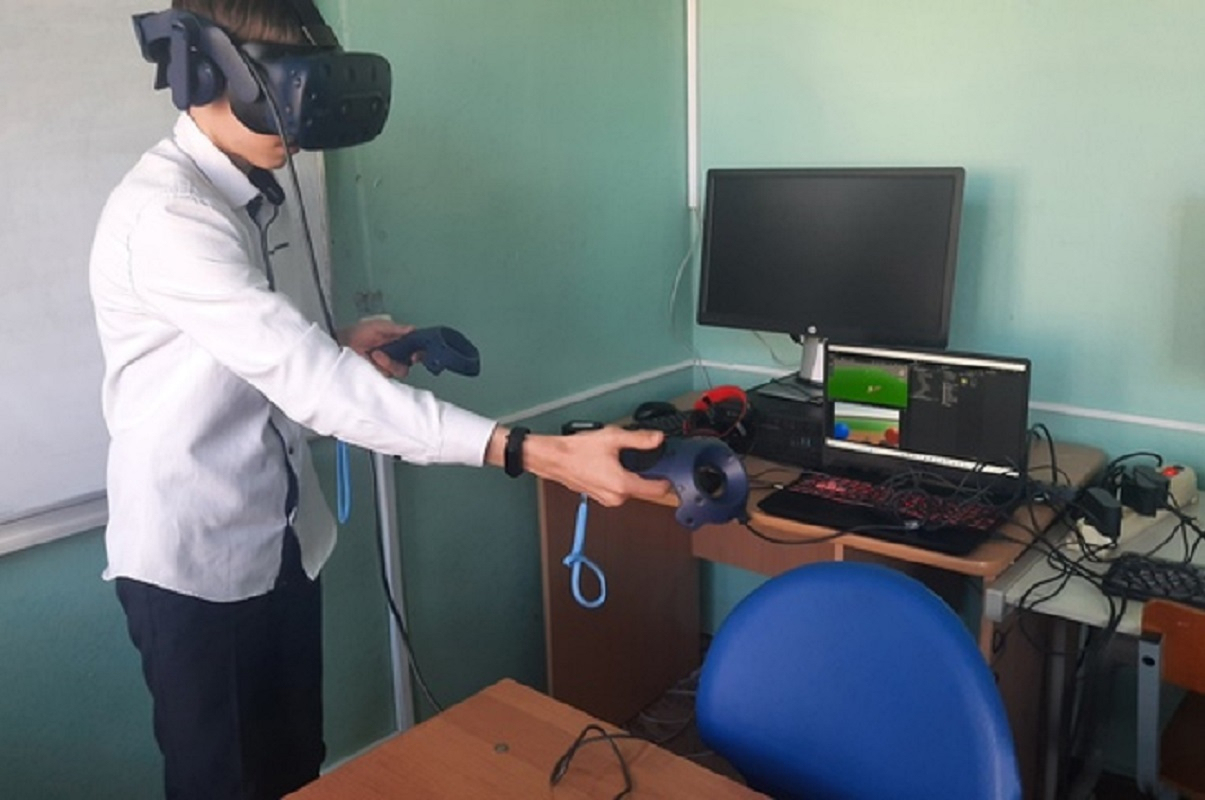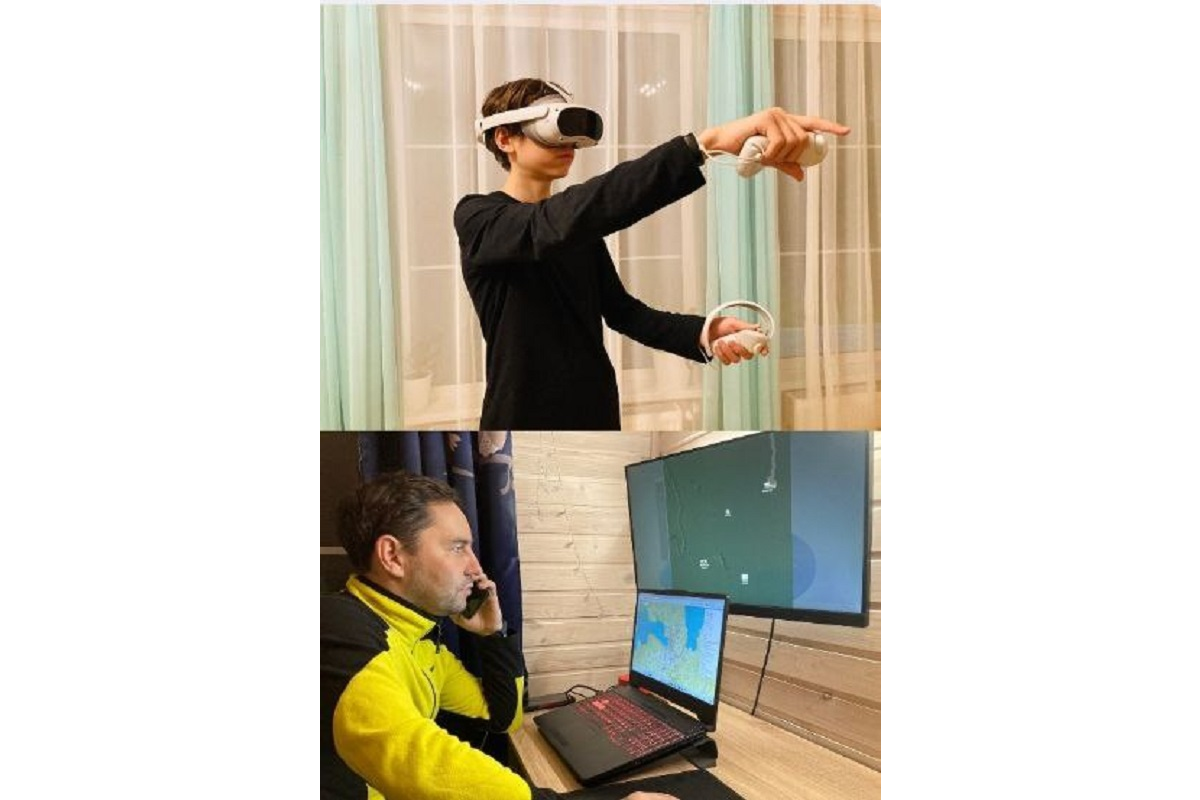Student of the Gymnasium at St Petersburg University develops VR trainer for search and rescue team leaders
A student from the 9th "M" class of the Faddeev Academic Gymnasium at St Petersburg University, under the guidance of scientists from the Department of Informatics at the University, has developed a virtual reality (VR) trainer designed for search and rescue team leaders. The development aims to enhance communication skills with individuals lost in the forest through a gamified approach, ultimately improving the efficiency of search operations.

Search and rescue operations (SAR) in forests, fields, and other natural environments are complex and responsible activities aimed at ensuring the safety of individuals lost in the wilderness. These operations encompass a wide range of tasks, including efficient searching of those lost in the forest, providing them with first aid, ensuring their coordinated evacuation, and facilitating their subsequent rehabilitation.
The research findings are published in the Russian Internet Journal of Industrial Engineering.
During search and rescue operations, situations often arise where communication with victims can be established, such as via mobile phones. However, effectively resolving the task of rescuing a person requires specific skills, including the ability to establish trust relationships with a victim under significant stress and the ability to quickly and clearly gather information, as the battery of the mobile device is often running low.
This is particularly relevant in St Petersburg and the Leningrad Region, which contain vast forested areas. During peak activity periods, such as berry or mushroom seasons, the number of requests for search and rescue operations can rise dramatically, reaching as many as 68 requests per day. According to the Ministry of Emergency Situations, 662 people went missing in the forests of the Leningrad Region during the summer of 2023.

Daniil Grinenko, a student at the Faddeev Academic Gymnasium of St Petersburg University, has developed a trainer for search and rescue (SAR) team leaders using virtual reality technology.
The Alone in Forest trainer is designed to train search and rescue team leaders in a gamified format. The application was developed using the C# programming language and the Unity 3D engine, integrating the SteamVR virtual environment, the Unity Standard Asset Toolkit, the Blender modelling tool, and Pico 4 virtual reality goggles.
Anastasiia Grigorieva, Associate Professor in the Department of Informatics at St Petersburg University, the project supervisor
In the simulation, one player assumes the role of a lost individual and "enters" a pre-designed environment — a nocturnal forest — with which the person can interact through VR goggles. Meanwhile, the search and rescue team leader communicates with them from the real world, making decisions based on the information provided by the lost player. Communication between the players is critical to completing the task successfully. The lost individual verbally shares details about their location, observed obstacles, and environmental conditions, while the search and rescue team leader analyses this information and provides rescue instructions via a microphone.
Training for search team leaders traditionally takes place once a year during the summer. The trainer enables training to occur at any time of year and with any frequency, making it a versatile tool. The development was primarily designed for volunteer rescue organisations, with the search and rescue team Extremum providing consultation during its creation. Currently, the trainer replicates the terrain of the Leningrad Region. However, the open architecture of its technical framework allows for adaptation to other conditions and geolocations.
Scientists from St Petersburg University are also advancing technologies to aid search operations. For instance, they have developed a drone capable of locating people in the forest by detecting their shouts. Additionally, the University’s mathematicians, in collaboration with their colleagues, have created a mathematical model featuring an adaptive digital control system. This innovation will enhance the realism of car and plane simulators while protecting them from failures caused by overload.
"This approach allows for the effective simulation of real search and rescue scenarios. It provides an opportunity to undergo training in guiding individuals safely out of the forest via phone communication, in a gamified format and without any risk to the health of participants, at any convenient time," said Daniil Grinenko, a student of the Faddeev Academic Gymnasium at St Petersburg University.

The developers tested the trainer on ten pairs of subjects and released it for general use.
St Petersburg University, the oldest university in Russia, was founded on 28 January (8 February) 1724. This is the day when Peter the Great issued a decree establishing the University and the Russian Academy of Sciences. Today, St Petersburg University is an internationally recognised centre for education, research and culture. In 2024, St Petersburg University celebrates its 300th anniversary.
The plan of events during the celebration of the anniversary of the University was approved at the meeting of the Organising Committee for the celebration of St Petersburg University’s 300th anniversary. The meeting was chaired by Dmitry Chernyshenko, Deputy Prime Minister of the Russian Federation. Among the events are: the naming of a minor planet in honour of St Petersburg University; the issuance of bank cards with a special design; and the branding of the aircraft of the Rossiya Airlines to name just a few. To mark the 300th anniversary of St Petersburg University, a postage stamp depicting the Twelve Collegia building and the monument to Count Sergey Uvarov was issued. Also, a Soyuz rocket bearing the symbols of the University was launched from the Baikonur Cosmodrome.
By the decision of the Governor of St Petersburg Alexander Beglov, 2024 is a year of the 300th anniversary of St Petersburg University in St Petersburg. On the day of the University’s 300th anniversary torches were lit on the Rostral Columns on the Spit of Vasilyevsky Island. St Petersburg University flags were raised on the Palace Bridge. The city public transport was decorated with the University’s symbols. During St Petersburg’s City Day celebrations in May 2024, St Petersburg University acted as a participating venue. Additionally, the University has launched a website dedicated to the anniversary. The website contains information about outstanding University staff, students, and alumni; scientific achievements; and details of events held as part of the celebration of the 300th anniversary of the University.

